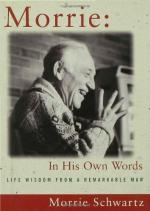
|
| Name: _________________________ | Period: ___________________ |
This quiz consists of 5 multiple choice and 5 short answer questions through Part I, Understanding Where You Are Now, Chapter 3, Grieving for Your Losses.
Multiple Choice Questions
1. What is the second vital step that Schwartz describes in Chapter 1?
(a) Deny what is happening.
(b) Accept the condition.
(c) Prepare for a full recovery.
(d) Tell your family and friends.
2. Before being diagnosed with ALS, what other disease kept Schwartz from physical activity?
(a) Pulmonary fibrosis.
(b) Asthma.
(c) Arthritis.
(d) Osteoporosis.
3. According to Schwartz, it is crucial that one do things ______ than before.
(a) More slowly.
(b) Differently.
(c) With more concentration.
(d) With more determination.
4. How does one handle stressful emotions, according to Schwartz?
(a) By releasing anger.
(b) By seeking professional help.
(c) By informing friends and family that help is needed.
(d) By relaxing and accepting that achievement is going to come later than expected.
5. Schwartz received a diagnosis for what disease?
(a) ALS.
(b) Brain cancer.
(c) Pulmonary fibrous.
(d) Parkinson's disease.
Short Answer Questions
1. What is the fourth aspect of the coping with illness that Schwartz suggests to his readers?
2. According to Schwartz, what is the most constant feeling one has when in declining health?
3. Which vigorous, physical activity did Schwartz enjoy before he was diagnosed with ALS?
4. What did Schwartz refer to as the most surprising occurrence in beginning of his illness?
5. When Schwartz first learned of his sickness, what did he decide to start?
|
This section contains 278 words (approx. 1 page at 300 words per page) |

|




